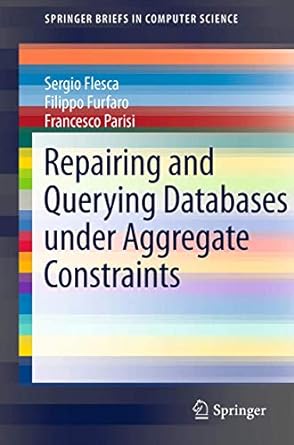Question
1) What are some questions you think that you would be asked initially on direct examination being qualified to testify as an expert? 2) What
1) What are some questions you think that you would be asked initially on direct examination being qualified to testify as an expert?
2) What kind of questions do you think the opposing counsel during Voir Dire will ask you? Remember on cross examination, opposing counsel can ask leading questions to challenge your expertise.
3) Describe why it is important, and how you would testify to limit any contradictions?
This final conference deals with the final issue any computer forensics examiner, or any other witness to an event will face - testifying under oath to what you know. Each person who testifies is a witness and as we discussed several weeks ago will present testimonial evidence. As an expert witness, which is how a computer forensic examiner will be generally be presented, you are not providing eye-witness testimony to a crime, but are testifying about what you as an expert found or did not find during your collection, preservation, and examination of physical evidence.
When you testify on behalf of the government (normally this would be a prosecutor or district attorney), or could be the defense counsel, you will first testify on direct examination - that means the attorney who called you to the stand has to lay certain groundwork to get your testimony about your examination of the evidence before the jury as an expert (known as Voir Dire). Once the preliminary questions have been asked and answered, the attorney handling the direct examination will then turn over examination to the defense. This is often done before you are allowed to answer questions about the actual evidence or case before the court.
The reason this is done in this matter is that you are first being presented to the court as an expert in some field. The opposing counsel gets to cross-examine you (Voir Dire) to try to defeat your being named as an expert. In cases where you have already been determined to be an expert by the court on previous occasions and testimony, there is less of a chance the opposing counsel will be successful in discrediting your testimony admissible as an expert. But, for a new examiner, the first couple of times before the court will be more demanding as to your expertise.
After both sides had a chance to question your bone fides as an expert, the counsel wishing you to be accepted will make a motion that you be accepted as an expert. Once that is complete, you will be asked about the matter at hand, and will testify to your collection, preservation, and examination of physical evidence. This is also where the opposing counsel will be especially alert for any weakness or contradictions in your testimony.
Step by Step Solution
There are 3 Steps involved in it
Step: 1

Get Instant Access to Expert-Tailored Solutions
See step-by-step solutions with expert insights and AI powered tools for academic success
Step: 2

Step: 3

Ace Your Homework with AI
Get the answers you need in no time with our AI-driven, step-by-step assistance
Get Started


